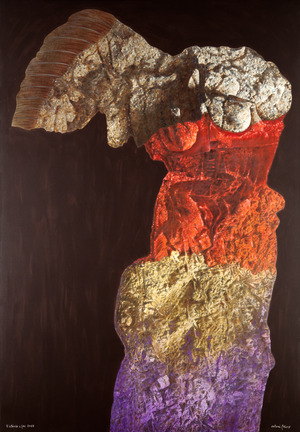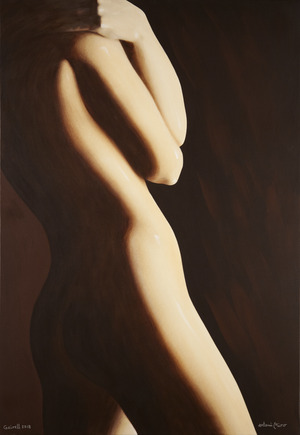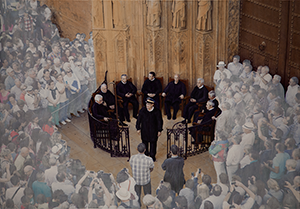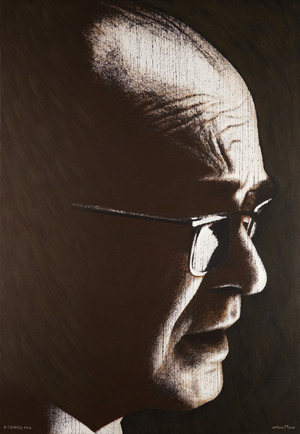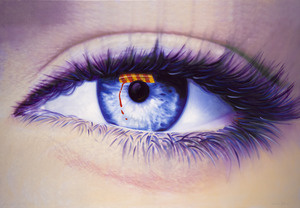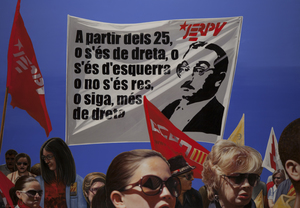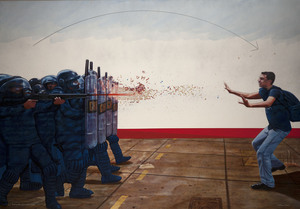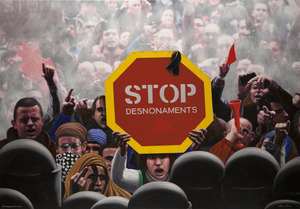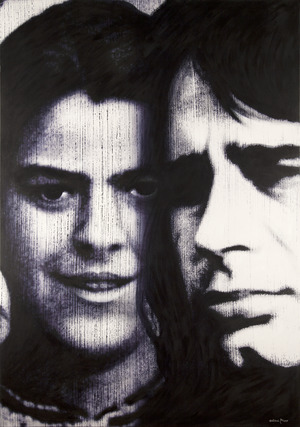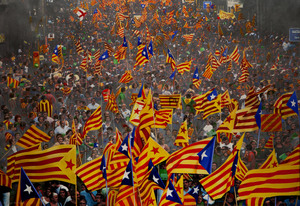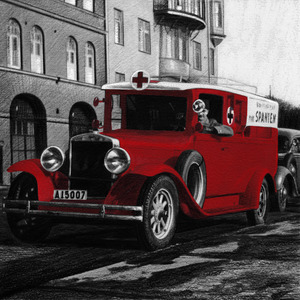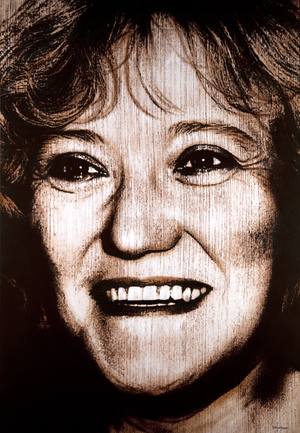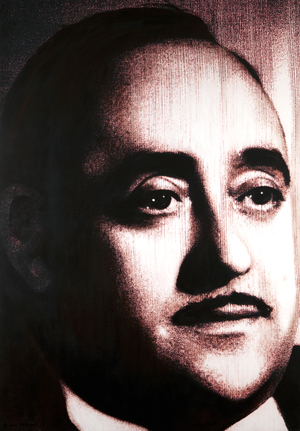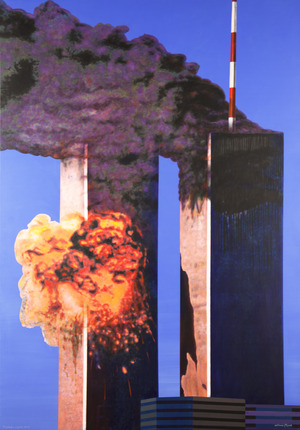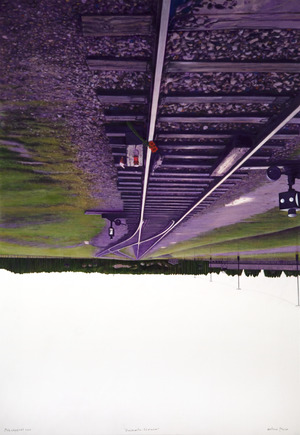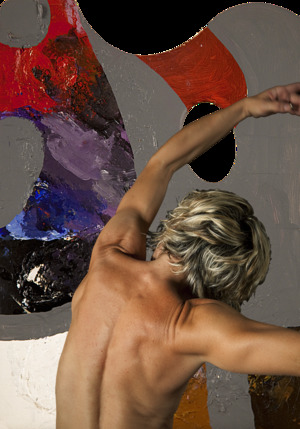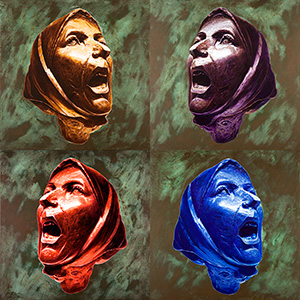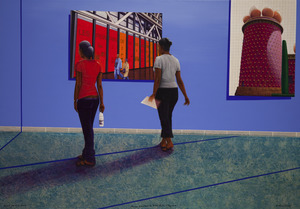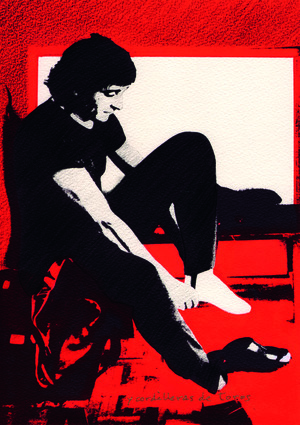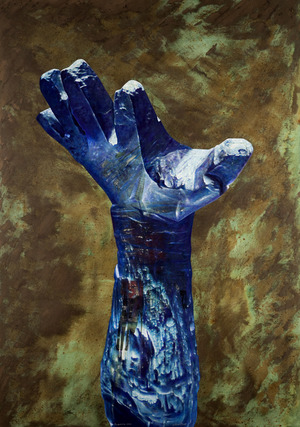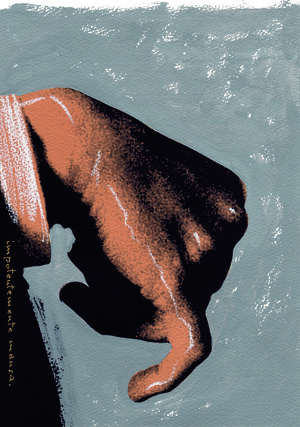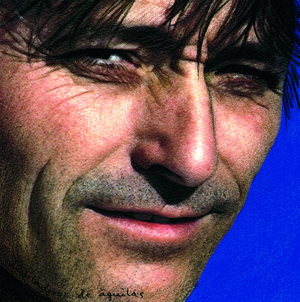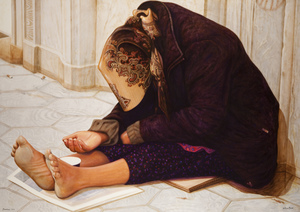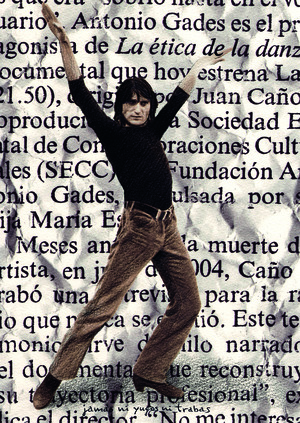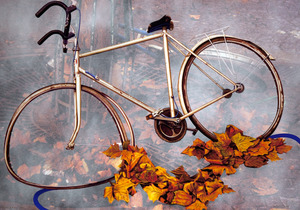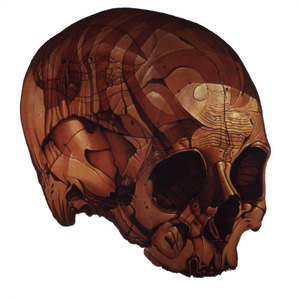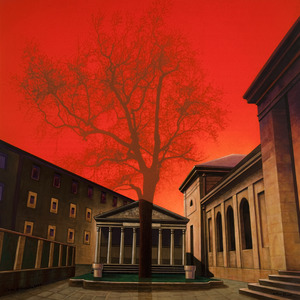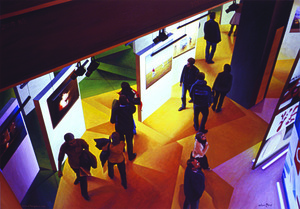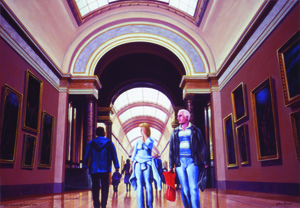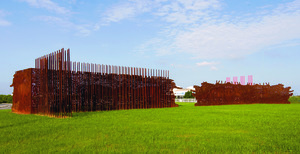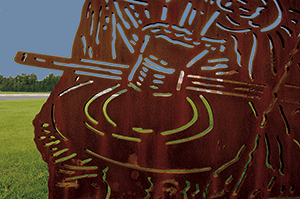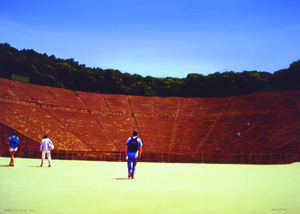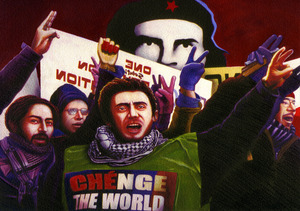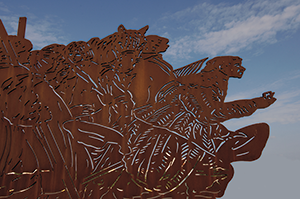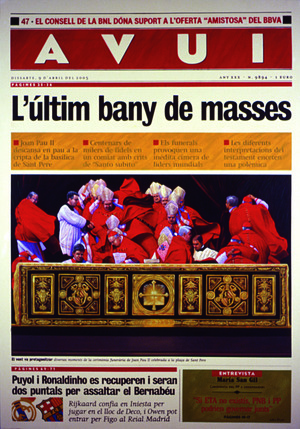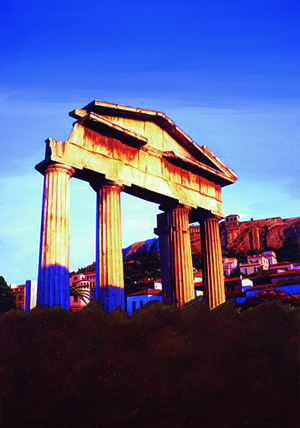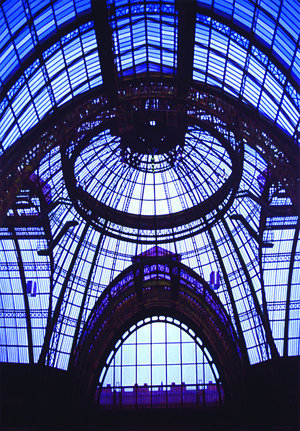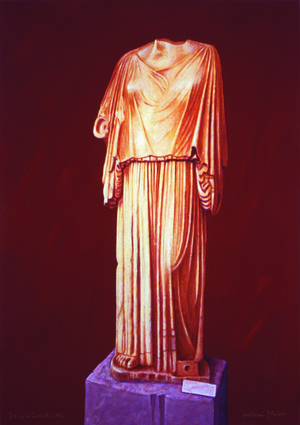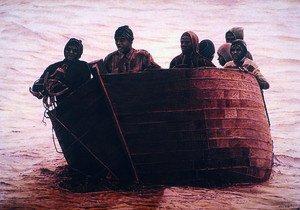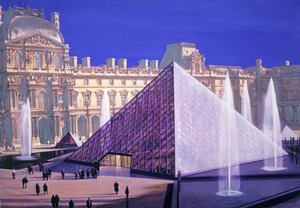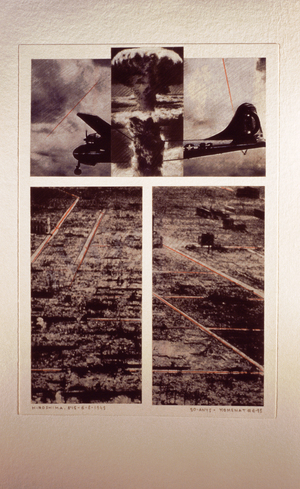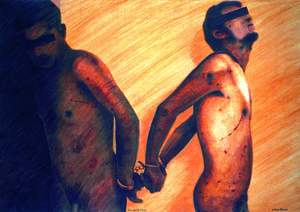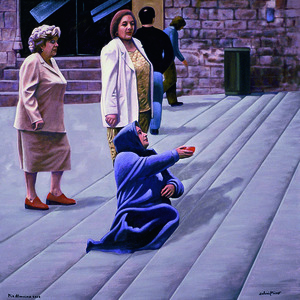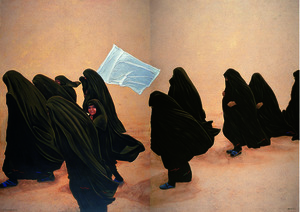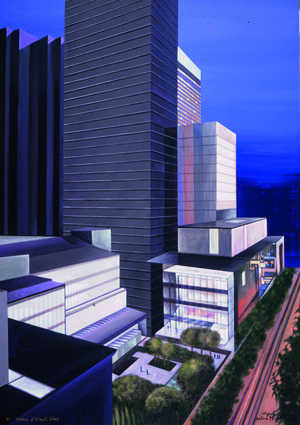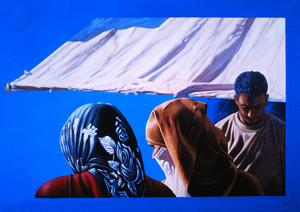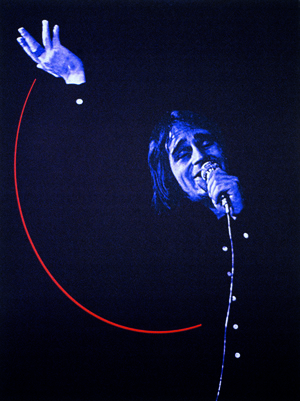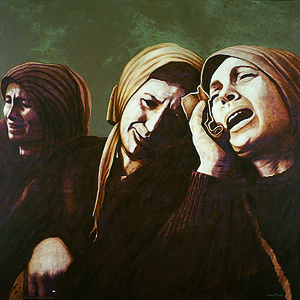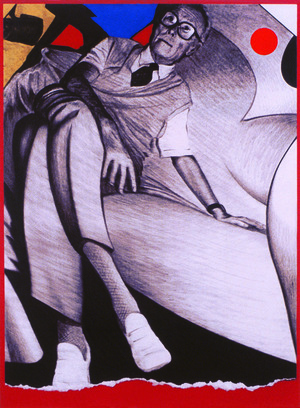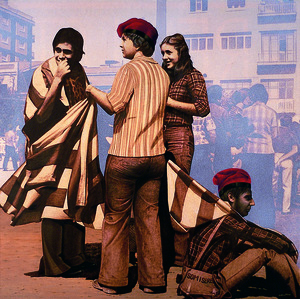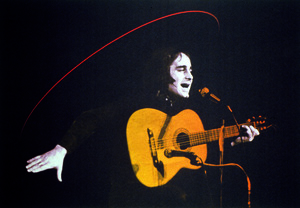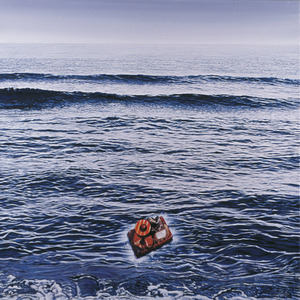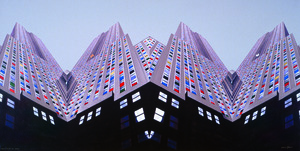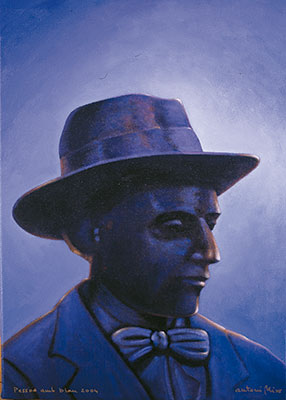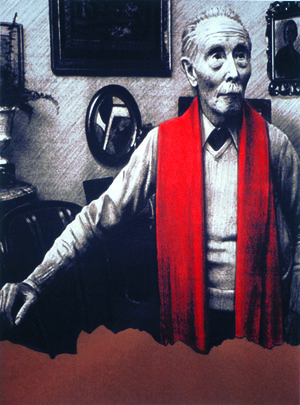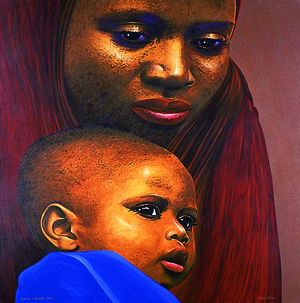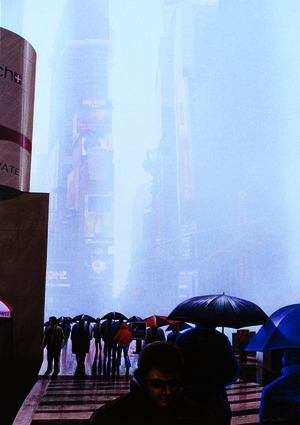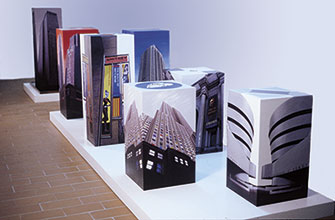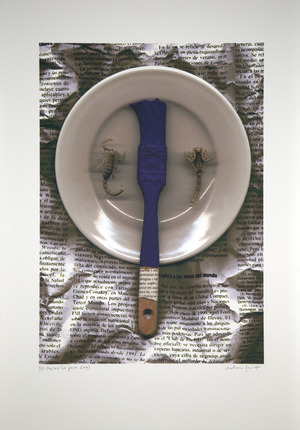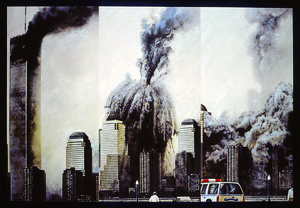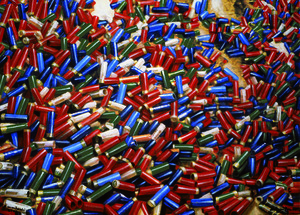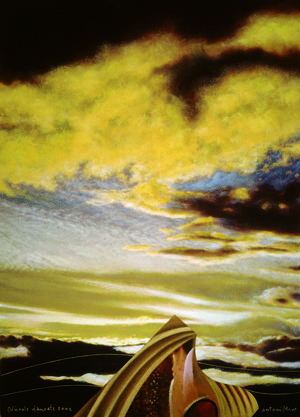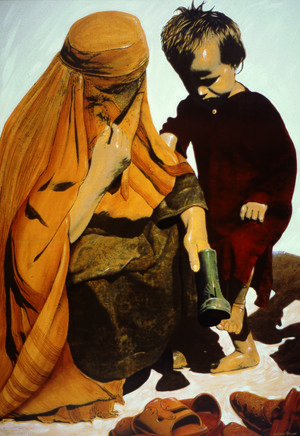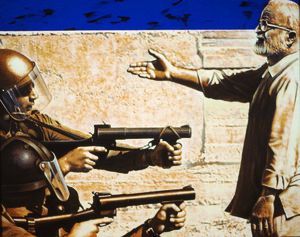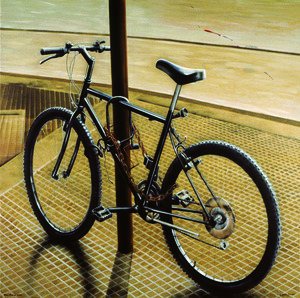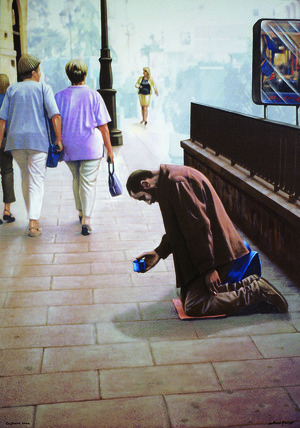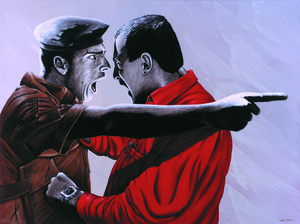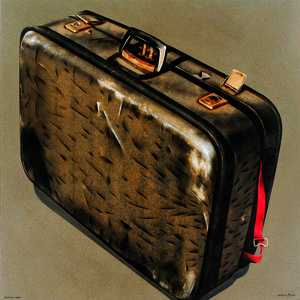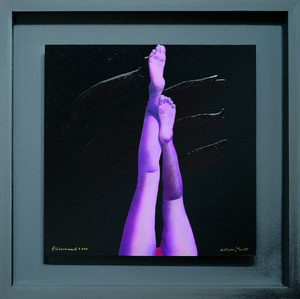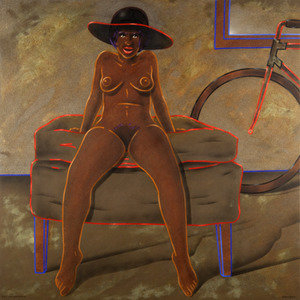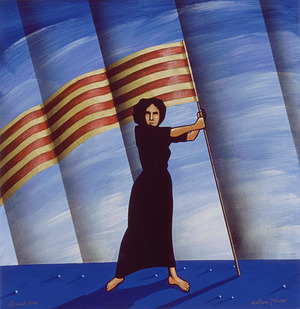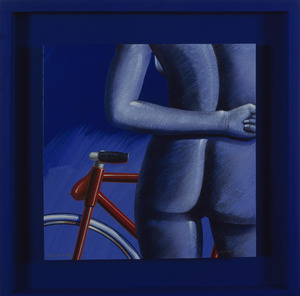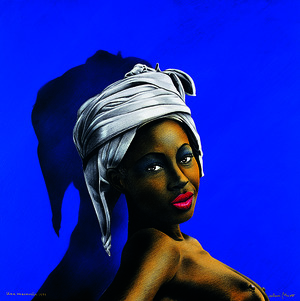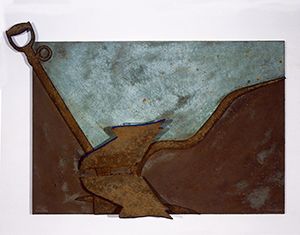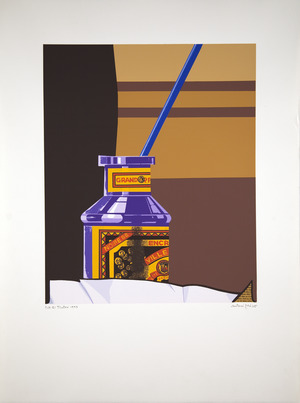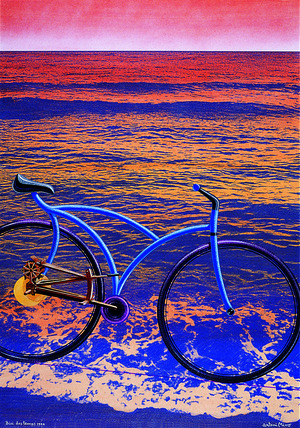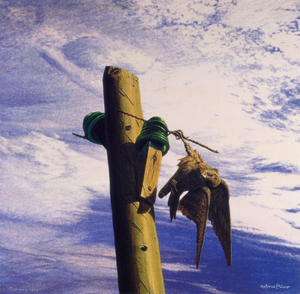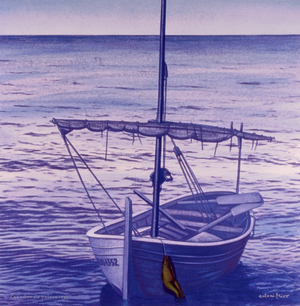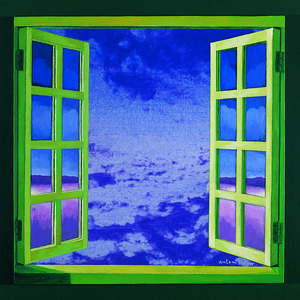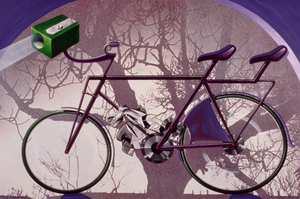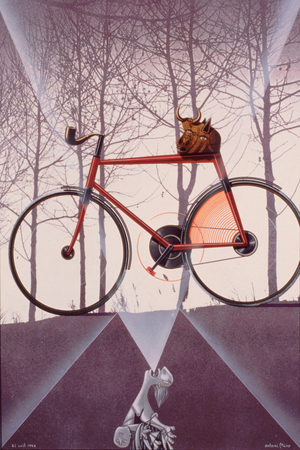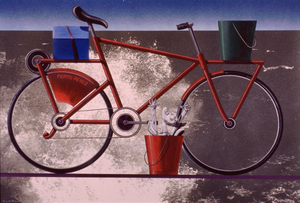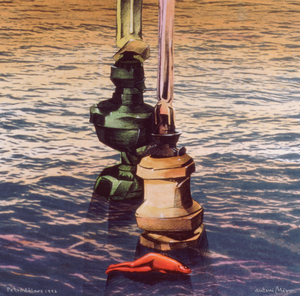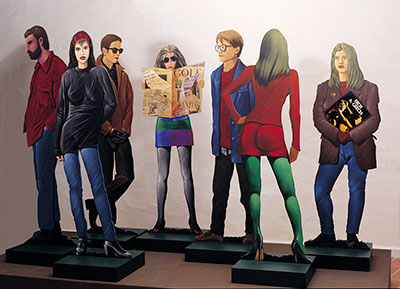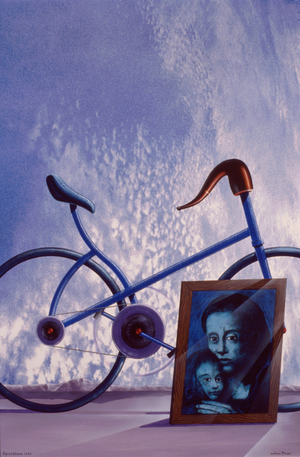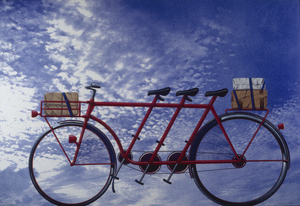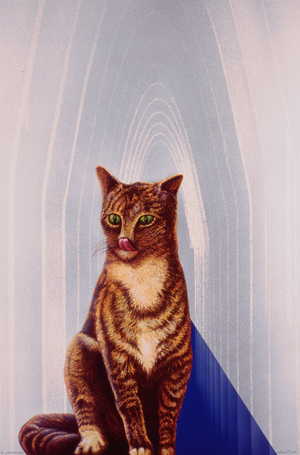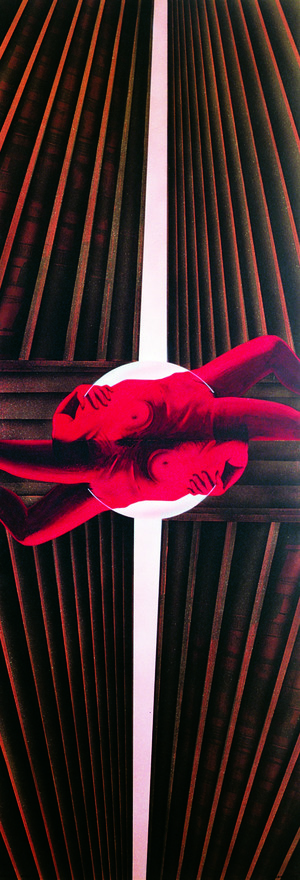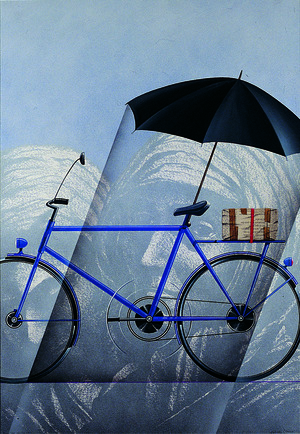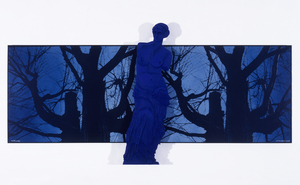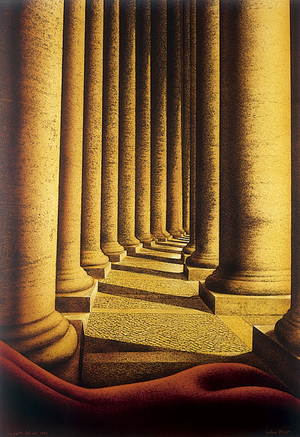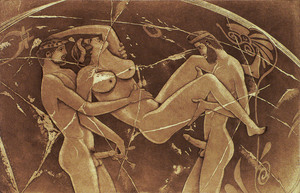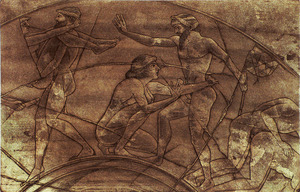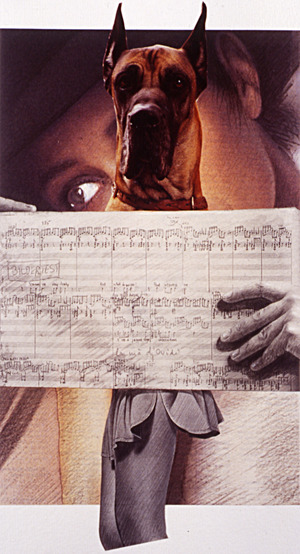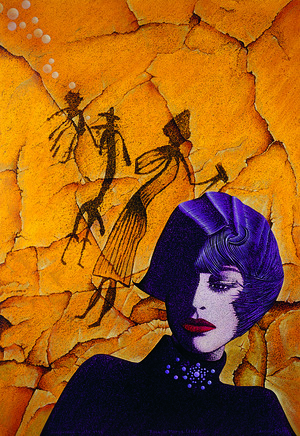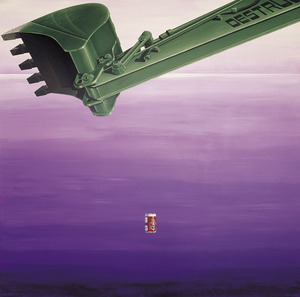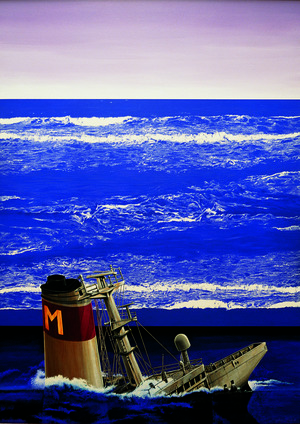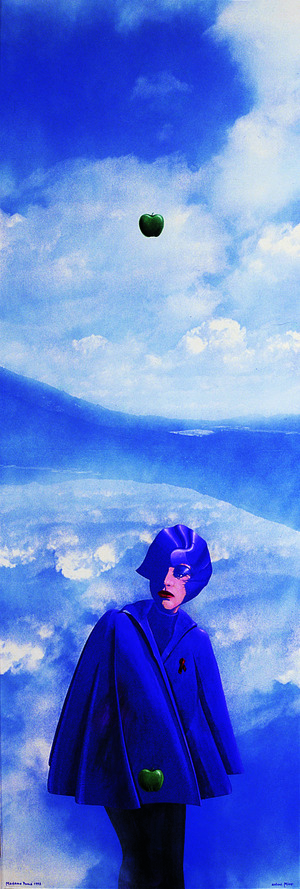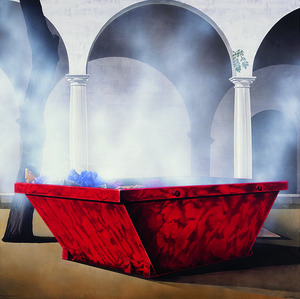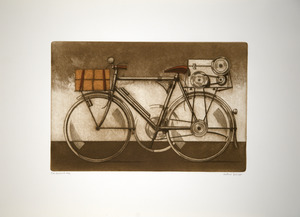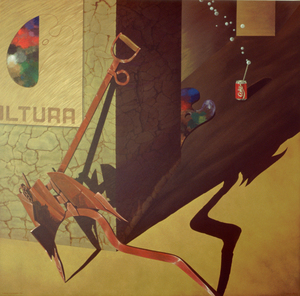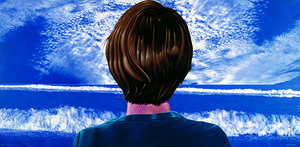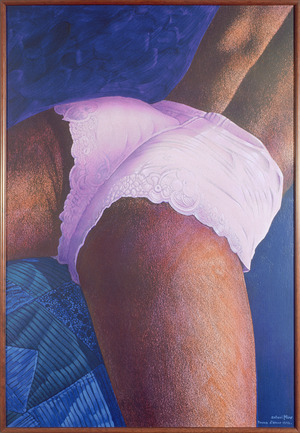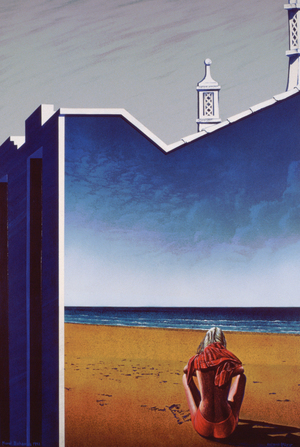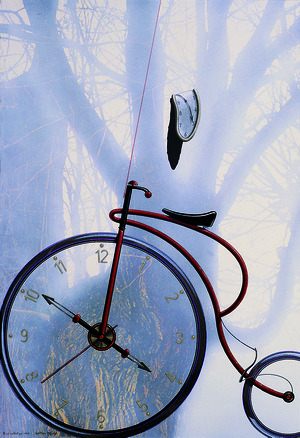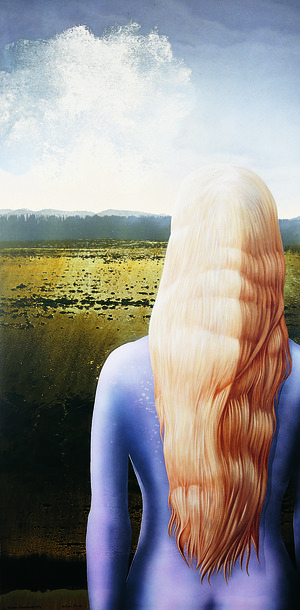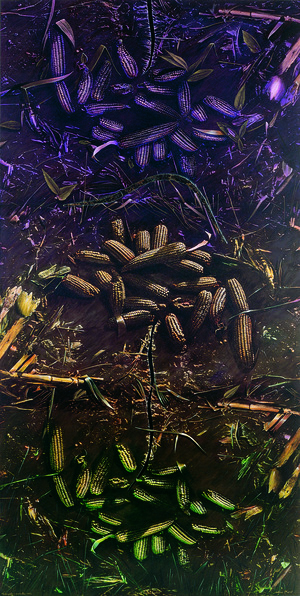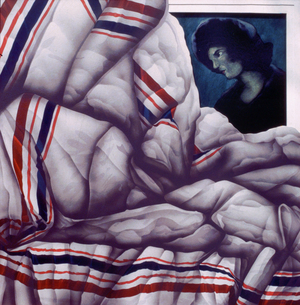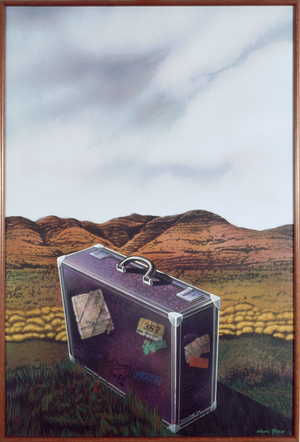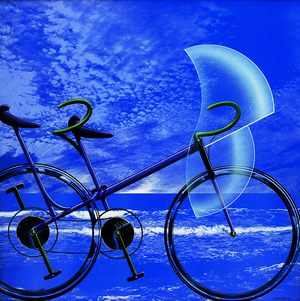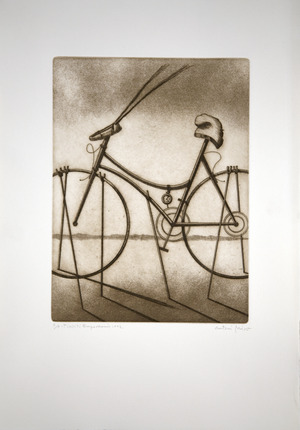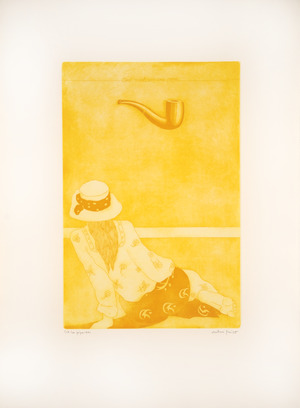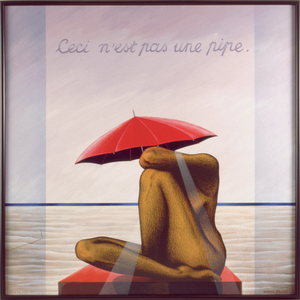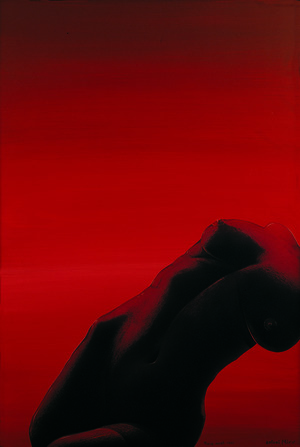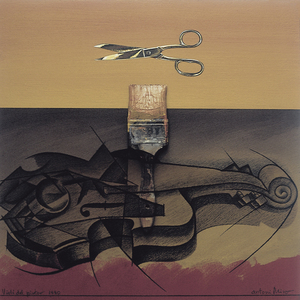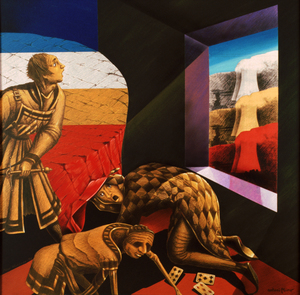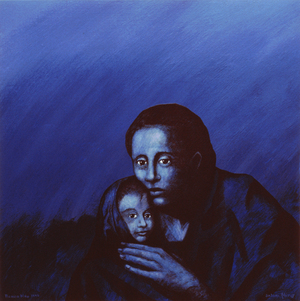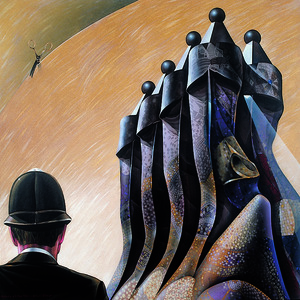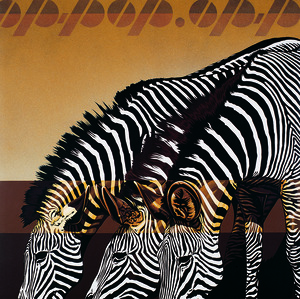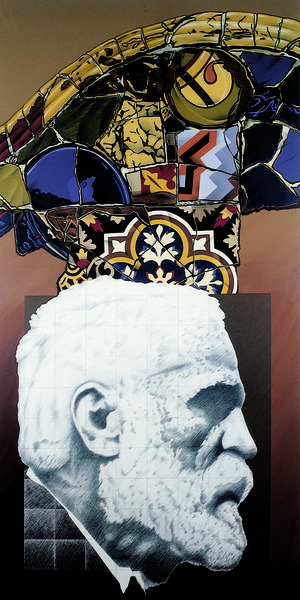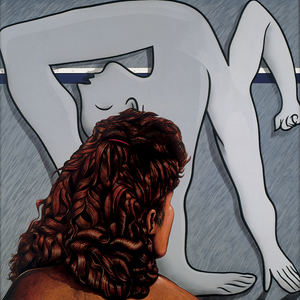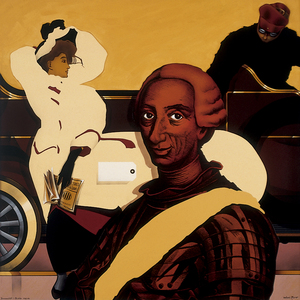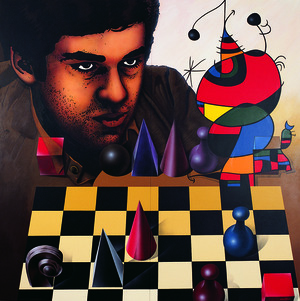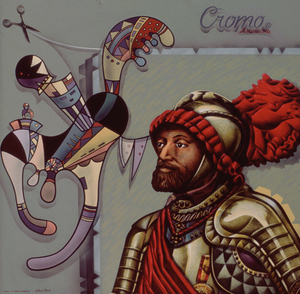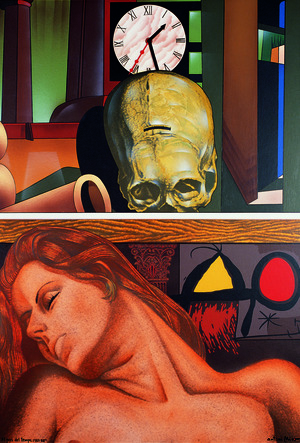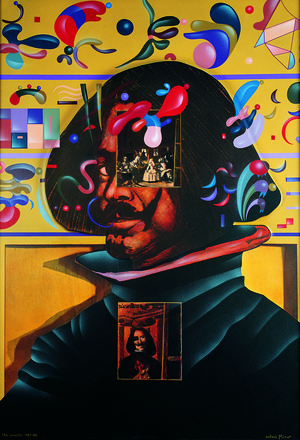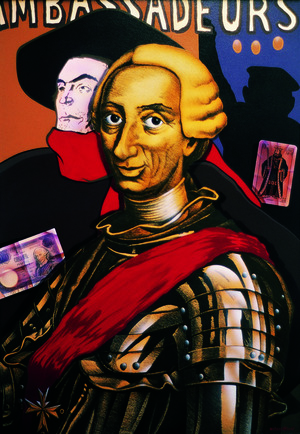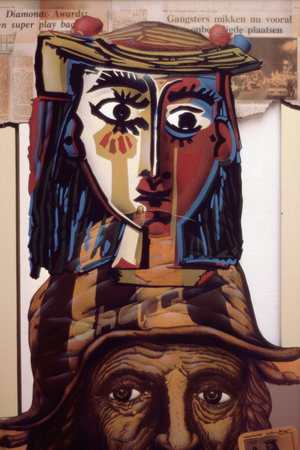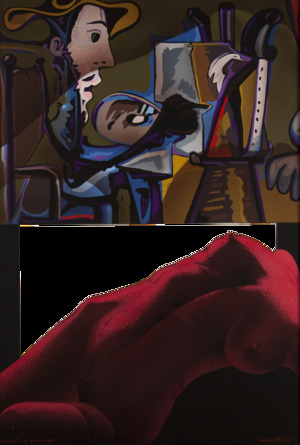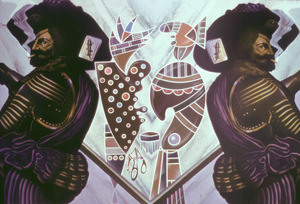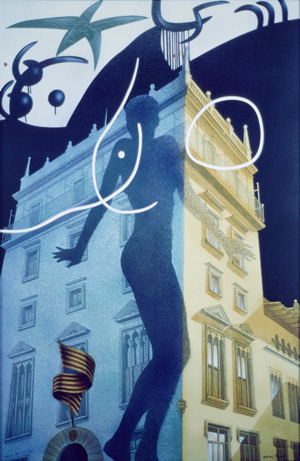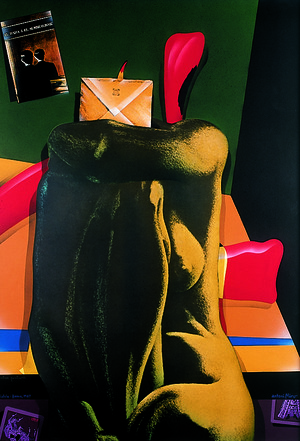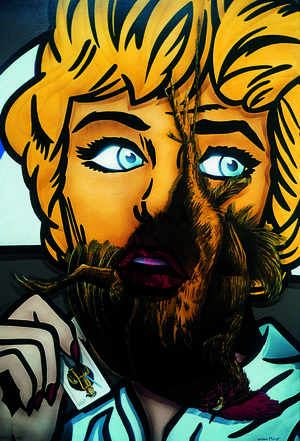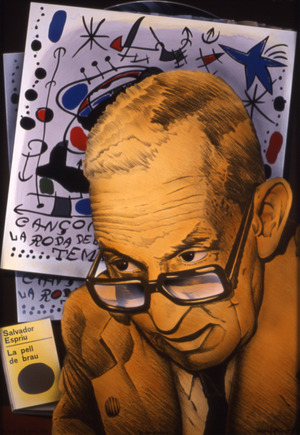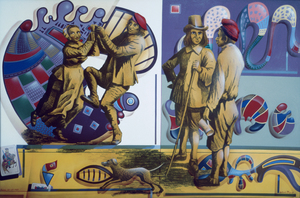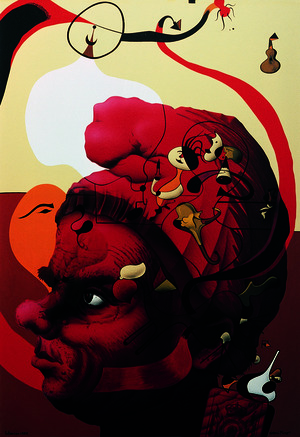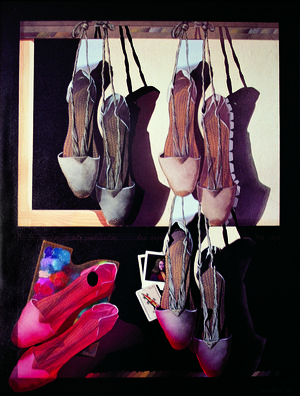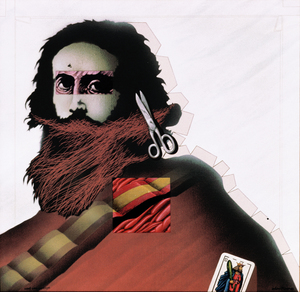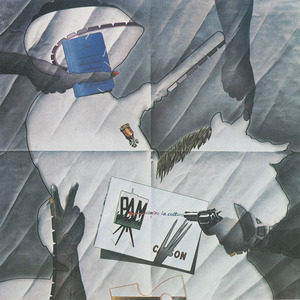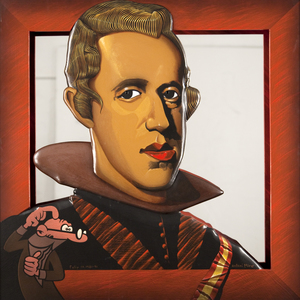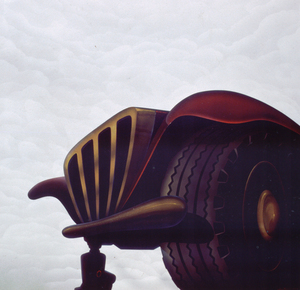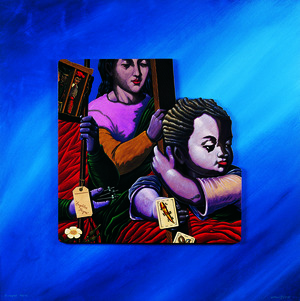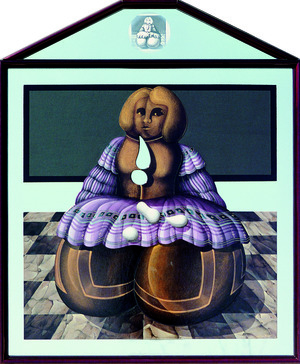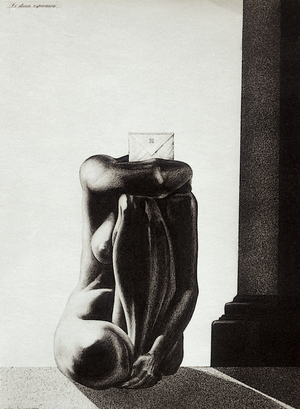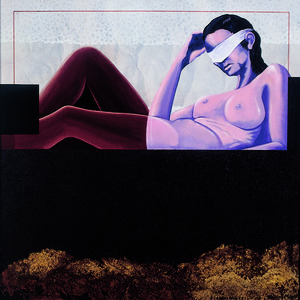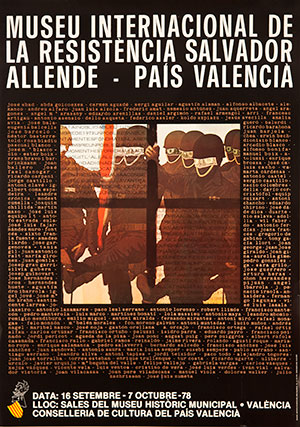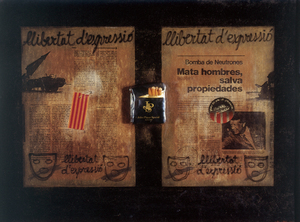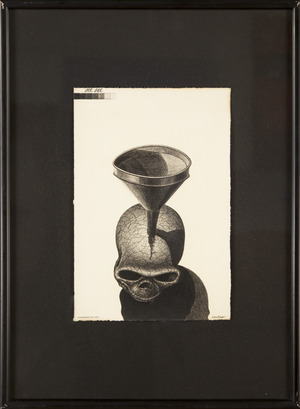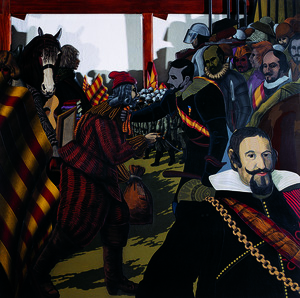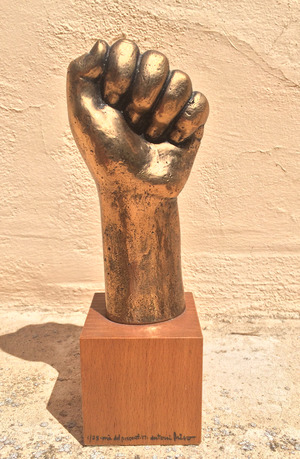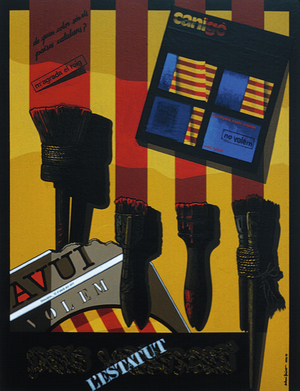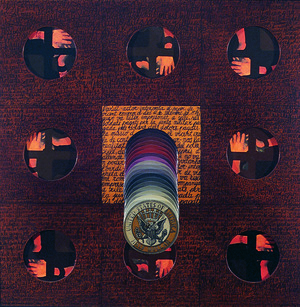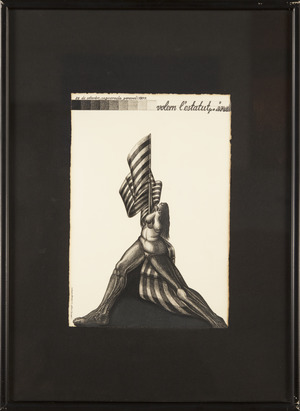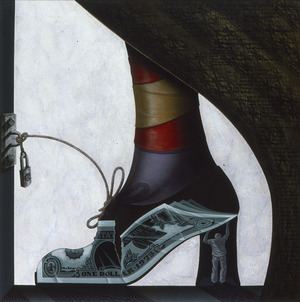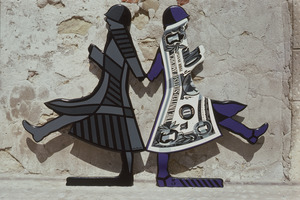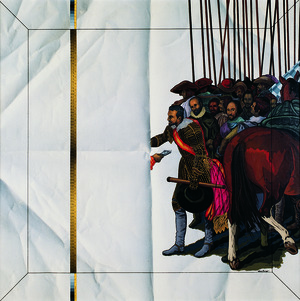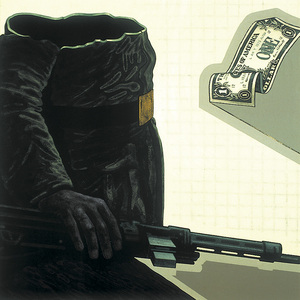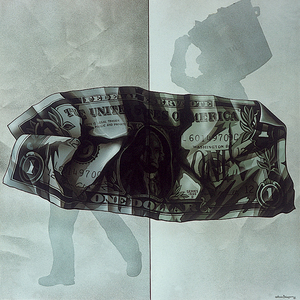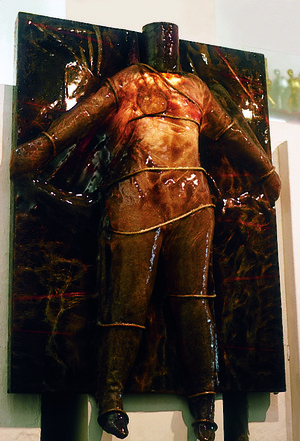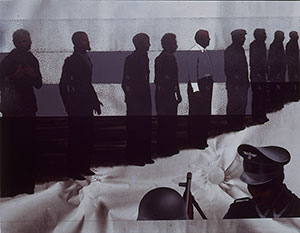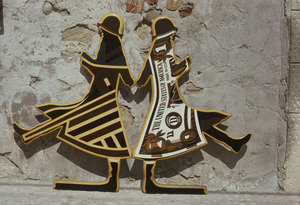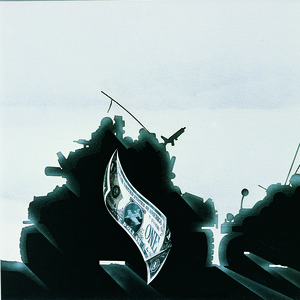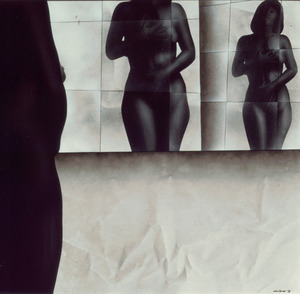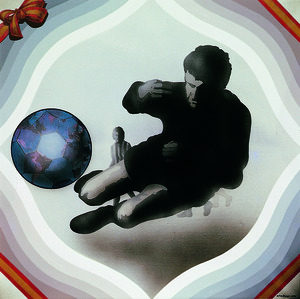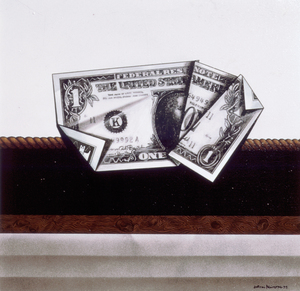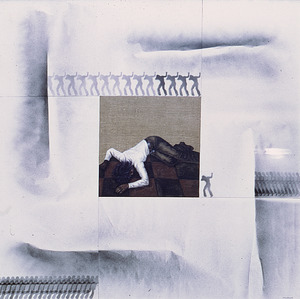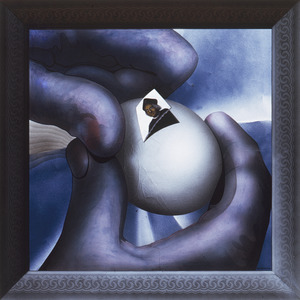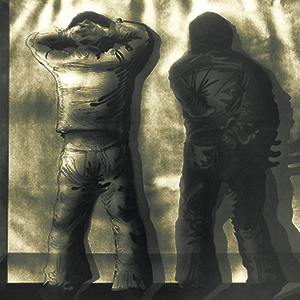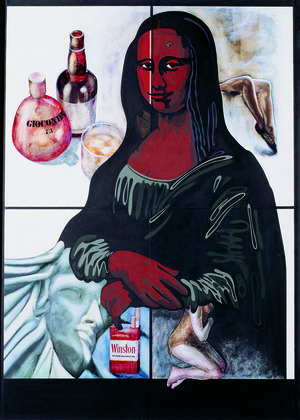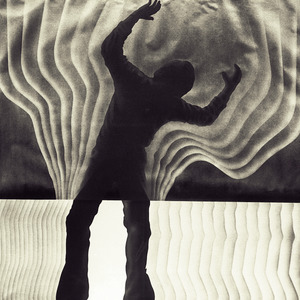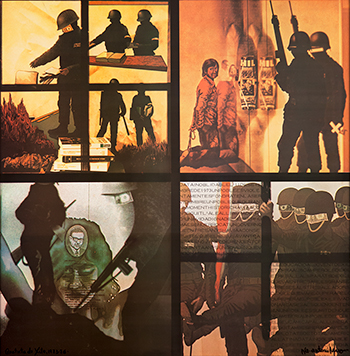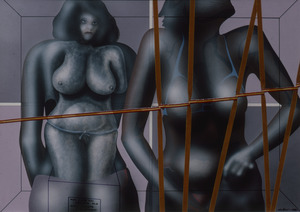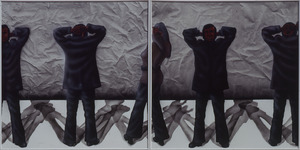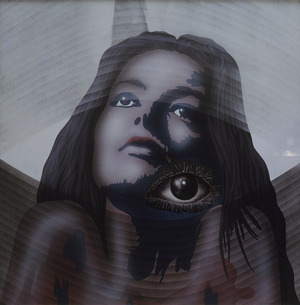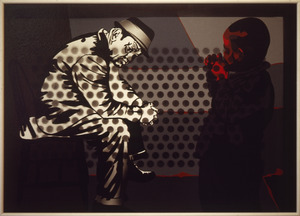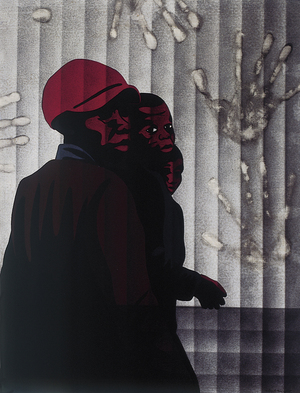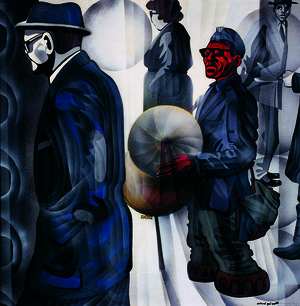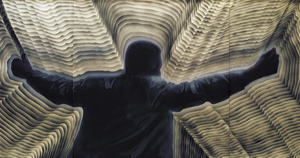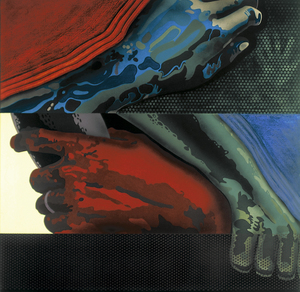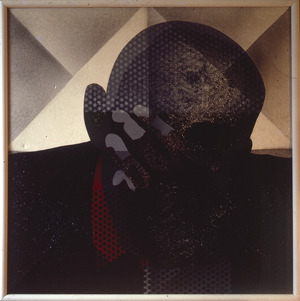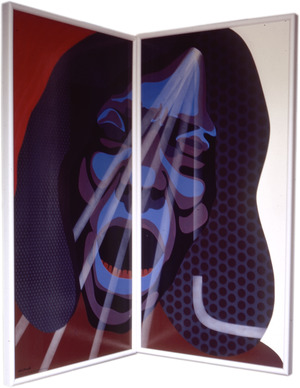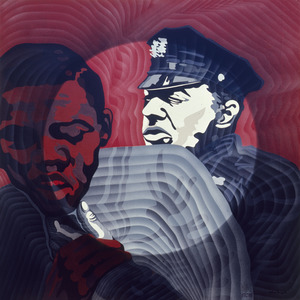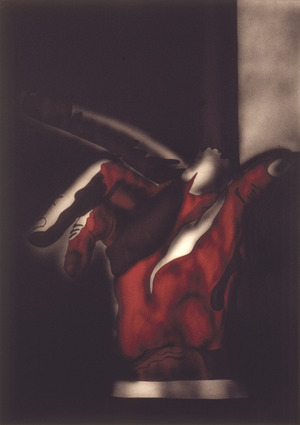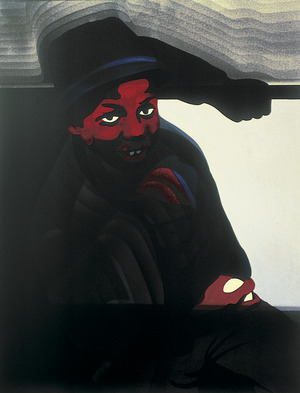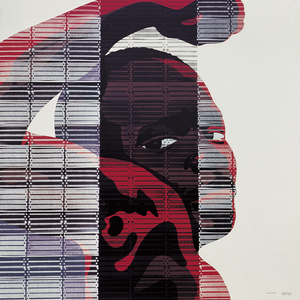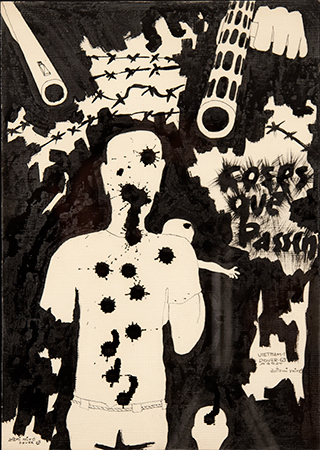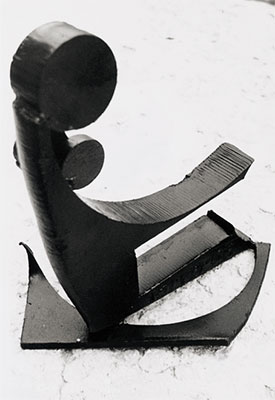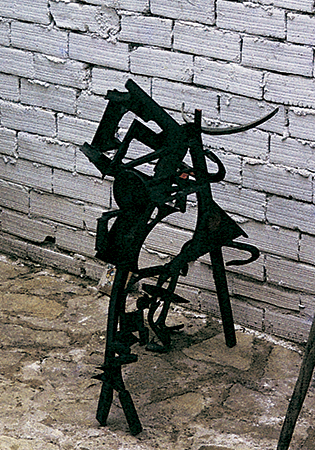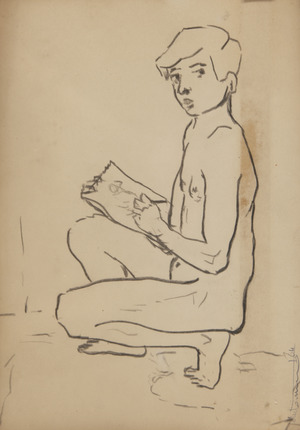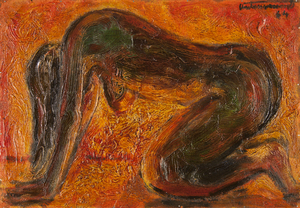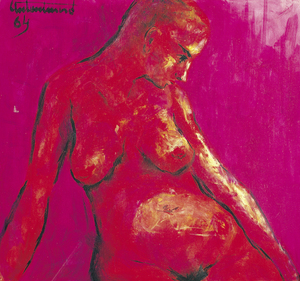To the letter
These authors have critically analysed Antoni Miró’s artistic work. First we find excerpts from their works; then, the full texts are provided. Finally, we can also see the authors’ works over the years and how they were directly in contact with the artist’s work.
List by: Authors
Silvestre Vilaplana
[...]It is the illusion of an Ithaca, those sculptures as perennial as convictions; it is a generous fondness, it is the link between yesterday and all the tomorrows to come. Antoni Miró’s art is voice, gaze, provocation, hope, accuracy, courage, commitment, everyday beauty. Antoni Miró’s art is ART.Full text
Martí Domínguez
[...]Full textAntoni Miró is a lewd and disinhibited painter, brave in his brushstrokes, whose takes on the human body have become ever more uncompromising over the years. From the first drawings and etchings he made back in the 1960s to his latest series, released in 2018 and 2019, there is a process of disinhibition, as if the painter wished to convey the whole erotic potential of those female bodies. When he shows them, one by one, we experience a powerful feeling of desolation while looking at the living flesh, at the immense pictorial hammam. [...]
Jordi Tormo
[...]Full textAntoni Miró and the Water Tribunal have much in common which makes them leaders in their respective fields. While Miró is a distinguished painter within the world of Valencian art and culture due to his work, career, and international renown, the Water Tribunal is a distinguished institution which is essential for an understanding the cultural heritage of today’s Valencian Country. While the activity of the Tribunal is noted for its orality, Miró uses the same language, Valencian, as the members of the Tribunal to name his paintings. While the activity of the Tribunal takes place in one single act held every Thursday to resolve the problems of the irrigators, Miró immortalises all he wishes to transmit in a painting directly and with a succinct title. His images speak for themselves.[...]
Santiago Pastor Vila
[...]Full textWell, the artist grants these characters from the cultural (of the two cultures, really, including science) and political fields a special condition of main actors in this representation, for their commitment to society and for the value of their achievements within different areas of creation. Men and women that exist, or rather existed in most cases, with a special significance, in short, in accordance with the values and the ideological system of the artist, while at the same time reinforcing the construction of a shared identity.
[...]
Joan Llinares
[...] And permanently his work always makes a nod to the men and women who have materialized the culture of a country understood in the “ausiàs-marchiana” form, that is, that way when our language did know no Bourbon borders nor symbols were divided into fringes. Art and reality in all their forms, formats and feelings; emotion and commitment to his people; freedom of those who believed it and practiced it... all this is what I find whenever I have the opportunity to gaze at Antoni Miró’s work.Full text
Lu Rois
What should I do about this duel that has no name?Full text
Orphan tears with so much war and so much death.
The scythe has decapitated all the carnations,
they will tremble in the wind and they will be stars in the nightfall.[...]
Carme Jorques i Aracil
[...]Full textTalking about Antoni Miró is talking about the identity and culture of, and love for, our Valencian Country. And we know he does it wilfully and at night, in such a way that, when the world wakes up, it has already been thought and done by Antoni.
His persistence and stubbornness, allowing no interference that may make him lose sight of his sustained and sincere commitment, with intelligence, honesty and irony, using his work to get us involved, are his hallmarks – there is no doubt about it.
[...]
Carles Pujades Ferri
Coming soon
Cesc Freixas
Maybe your legs will get tired,Full text
and haste will go through your heart.
When you do not have hope
look for a street and let your body free.[...]
Àngel Beneito
[...] is contemplating the work of an artist committed to history and to present, to past and to our time through the use of textures, shapes, colours and intentions, certainly testimonial and provoking intentions, which shake the viewers’ conscience to sensitize them and not to leave them indifferent. [...]Full text
Isabel Clara Simó
Oh, what a discomfort
have such a beautiful world
and so mean!And what consolation
to know that art is alive
and alert
like a scream!My friend, Toni friend:
do not leave the brush
never even,
achieve the old dream
to rediscover
Peace or within the scream.Rinse
the shadows of the night.
Do it for everyone
and we will be rich.
Josep Lluís Antequera
[...]Full textMiró considers culture as "the straight path to freedom" and affirms that "art must necessarily be critical"; painting means for him "to live the only way to survive", but this art must be based on perseverance, meticulous order, creativity together with the shyness of a busy retreat, although all this framed in a communication not at any price, but through ethics and aesthetics.
[...]
Fernando Castro
[...] Antoni Miró is a tireless observer of his surrounding reality and he takes sides because he knows that the necessary task is not simply to imitate what happens but to be able to offer critical and emancipatory154 options; his aesthetics is extremely detailed, precise and always furious155, it reveals a constant attitude of rebelliousness.Full textThrough his work we become aware of contemporary disasters, his plural gaze forces us to understand the crisis live in with direct messages and fair images156. After so many images, with a few words, Antoni Miró describes with lucidity what his task is: “reflexe la problemàtica d’avui”; “Reflect the problems of today”. [...]
Miquel Gil
I have seen the kleptomaniac andFull text
sinister face of the powerful master
fight the virtual battle
without weapons, without heroes
[...]
Armand Alberola
[...] Miró painted, engraved or carved our history, the more remote and the most current and he left his stamp on those institutions that were lucky enough to count on his cooperation. Everything from his deep convictions, from the purest social and political activism, fighting with the finest weapons that humans can use, with method and patient, and without ever giving up his plastic voice. [...]Full text
Eugenia Eiriz
Coming soon
Feliu Ventura
Words of colours and factory light,Full text
Afternoons that, in a glass, make tomorrows.
Life is what happens between canvases and sheets
extended as a plane of pleasure and combat.[...]
Valentin Balanovskiy
Leonidas Donskis
Antoni Miró is a unique artist who speaks a European language of modern sensibilities. He appears as a great Catalan artist who is capable of rediscovering the mental, esthetical and cultural bridges of Europe. [...]Full text
Mara Aranda
An alm for the love of God.Full text
You think and whoever looks at you feels contempt
You have lost the strength that every being has
Bent and crestfallen, you drag your feet.[...]
Valentyna Demian
[...] The new dimension granted by the artist to inherited and living art (flamenco) or to the way of social life organization (A. Miró series “Water tribunal” (2018) representing more example of the intangible cultural heritage included into UNESCO List) demonstrates that the intangible cultural heritage is not only the living culture and an integral part of today world but also an inexhaustible source of modern creativity in all its expressions. [...]Full text
Grup Júlia
Every morningFull text
you wait for me in a garden
reflected in Daumesnil lake in Paris
and we walk with astrolabes
as sailors,
lost[...]
Daniel Giralt-Miracle
[...] Miró wants to interact with because, basically, every of his works meets a meditation or it is a lament or warning cry given that he is a painter of ideas who knows how to combine the ideological content and the artistic expression to achieve particular balance customizing his works; a creation, looking at it that way, I would dare to say it constitutes a new “Llibre dels fets” because, as a whole, it becomes a narrative of the most important events of his life, written in first person, as did king Jaume.Full text
Emili La Parra
[...] one facet of this artist, located in the line of social realism and fully committed to the problems and achievements of his time. From this commitment, his keen interest in the past arises because he knows very well that this past has shaped the current situation. Therefore, the story has a central place in the work of Toni Miró. He uses a critical -sometimes with a heavy dose of irony, sometimes with real bitterness- to play this cathartic role [...]Full text
Teresinka Pereira
My fingers are walkingFull text
in silent delirium
and my hungry eyes
devour in a flight
the museums of Miró
not with words,
but with acoustics,[...]
Josep Forcadell
[...] In recent years, Antoni Miró is set at the spectators and art spaces. Great works go to the background: La Gioconda in the Louvre watched by a crowd of curious and faithful viewers and fast photo shooting, scholars and art lovers who travel the shadow of the Parthenon or the Sun of Epidaurus, walkers of the Greek Museum with attitude, affection and respect for those who made that temple[...]Full text
Porto Sanabria
[...] The enormous strength of his communication, his easily recognized allegories, and his intentional criticism make his work a very important referent: each execution is an attack, as fertile as it is fierce, made with absolute mordacity. [...]Full text
VM Vidal i Vidal
Coming soon
Josefina Bueno
[...]Miró often used elements that have reach in the first place, the painting, the colours, the canvas, the matter, on the second place, the speech, the words and literature. The artist knows how to adapt his language to the message you are looking for. All this builds one of the strongest artistic careers while been part of our civic culture.[...]Full text
Gabriel Garcia Frasquet
Coming soon
Maria Elena Ditrén
[...]One of them tells us about a world in which most of us who have access to this show are immersed. City dwellers with an intensity that is sometimes frenzied, who find a space in the museum through which they travel in silence, far from that other reality every city has in common. That other reality that tells us of material poverty. Stories of dispossession, of destitution, of abject poverty.Full text
Abel Prieto
[...] Antoni is a representative, in these particularly cruel times, of the most pure and authentic humanism. He does this without ever allowing himself any rhetoric nor melodrama and while demanding of the spectator an intelligent, active, questioning intelligence.[...]Full text
Ximo Company
[...] Miró is, above all, a master of the colour stain attached to the human body, to the aspirations and frustrations of human beings. Or a master of the bodies, the way of looking, the sufferings and human postures wisely illuminated by the light and the colour distilled by his superb retina. [...]Full text
Carles Cortés
[...] but one day he woke up with the need to express his feelings, his view of the world through his painting. Art allowed him to offer the world his sharp comments, an avalanche of criticisms born in his mind. Times were hard in the country; dictatorship asphyxiate freedom and artists of Toni’s generation fought for us all, [...]Full text
David Rico
[...] He leaves anything that is superfluous aside so as to concentrate on the figures that contain the message, the communicative force, that transmit pain and desperation, rejection and sadness, the decadence tolerated in a part of present world societies. He accomplishes this through the specific placing of figures, through the strength of a look, the intentional use of detail or of certain colours that impregnate the image that is represented with life and charm. [...]Full text
Jesús Pradells
[...] his unwavering commitment to his friends, and to any cultural or civic initiative that has progressive and seek the denunciation of social injustices as presented in his works. The painter Miró itself has three basic elements of Miró person: social concerns, the national debate and a taste for humans. An interest in the inner beauty of the individuals known which comprises the three axes targeted. [...]Full text
Pau Grau
[...]We are in Antoni Miró’s country, and once inside its borders you will have seen that everywhere there is an enormous spectacle made of images that are at the same time precise and intensely vivid and every day. The images of humanity, of what most disturbs human beings: power, death, sex, violence, fear... It is very likely that you will have the feeling of travelling through a place you have been in before; but it is one of the charms of the territory we are entering. As you enjoy the view you will discover everyday objects, icons that are part of your closest and most immediate reality, images that are part of the regular traffic of your retinas: [...]Full text
Ricard Huerta
[...] Although we initially saw Antoni Miró as a privileged observer of the city, as an interpreter of its ins and outs, the fact is that in the works of the painter from Alcoy, we can find enough details to put together a significant framework of his fighting character. This comes across not only as a pictorially attractive postcard of his travels and passions, but above all, as an energetic stance against colluding silence. The painter’s voice is the poet’s complaint. Action on canvas is a challenge, a declaration of principles. [...]Full text
Vicent Berenguer
[...] It is obvious that it is a very creative attitude since, in the contemplation of the painting, we are induced to certain readings that can be enriched according to the nature of its elements and the cultural sensitivity of the viewer or reader. In this way, his paintings, apart from causing the act of seeing in the conscience, it surprises with the breaking of conventions so that the reader of the painting is aware of the relationships established with the world from an undeniable sense of contemporaneity but also with an appeal to the meaning of history.[...]Full text
Francesc Verdu
Carlos Delgado
[...] Antoni Miró is an artist traditionally classified as a follower of pop-art, but his originality and expressiveness warns us that we are before a figure whose work does not admit any kind of limiting categorization, since there are many readings to be found in works as suggestive as his. [...]Full text
Floriano di Santi
[...]Looking inside the history of art has motivated the deeply reflective character of Miró’s figurative tékne in the last four or five years, his infinite worry. He reflects on the human condition in an implication that, from individual memory, the very thoughts, the very feelings, goes to a successive explicitness almost of a background of collective[...]Full text
Valentina Pokladova
[...] Therefore, great is the role of the artist who nourishes culture. Practically, Miró is Kantian; he believes not in natural kindness, but in culture. He substitutes nature for the person, appeals to human spirituality, tells the truth that one wants to keep hidden. His series of lithographs “Viatge interior” continue to speculate on the fact that common notions of world stability are again destroyed, sense and moral postulates are decayed and the disrupted civilization looks withered by rationalism and neurotic due to prejudice. [...]Full text
Amalia García Rubí
[...] In Antoni Miró’s always reflexive paintings we find a philosophy of life, a road crossing where art and life join in a place that is further than what is apparently artificial.Full text
Miquel-Àngel Codes Luna
[...] So that, although the standard of social compromise is always high, the roads along which Antoni Miró’s artistic endeavour takes him are always open, so open that they reach the reflection of his own profession, nature vs. progress, or eroticism. [...]Full text
Pasqual Patuel
[...] The objective he has maintained throughout his artistic career is replete with this critical outlook towards the culture of the time, contributing with revisionist patterns aimed at promoting a change of focus towards new possibilities. With that purpose in mind, Miró has developed a comprehensive iconography which ranges from irony and sarcasm to the subtlest tenderness. His painting no longer evolves within a bland and neutral plane, but it brings with it a strong provocation aimed at provoking in the spectator a capacity for reflection on the context they live in. [...]Full text
Rafael Acosta de Arriba
[...] Up to now, his work shows in intense series of attempts to provide us with his humanistic obsessions, his ideas and beliefs of the current world for viewers to apprehend this vision and keep it in mind.Full text
Ricard Pérez Casado
[...] The trade goes first. Drawing, cutting out the space by the lines, flooding it in the reflection of colours; close to the reality of the eye but also to what the eye provides to the brain, to the knowledge. A lot of work, a lot of sentiments. The sober contention is part of the way of artist personality, halfway between the demiurge and the interpreter always, after the actor. Yes, discipline and seriousness. [...]Full text
Joan M. Monjo
[...] because Antoni Miró’s way of seeing and depicting reality is bitter and incisive. A kind of journal where, as he has for years and years, he points to the symptom, the plague, the social illness or the injustice in this apocalyptic phase of the perverse and abject economic system that we have to live with at the beginning of the 21st century. [...]Full text
Músics Mireia i Borja
You wait for me up the escalatorFull text
with a very little diplomatic bag,
your glance flees from the rhetoric
today is not the day, I do not see you very empathic[...]
Rosalia Torrent
[...] Miró’s image, like so many others of his images, was upholding the need for the necessary pause, resting the gaze on a beauty not devoid of mystery. [...]Full text
Sol Ferri
[...]This magician has a box where he keeps all the realities, all the lies, everything that is happening in the story he is living. The whole world inside a box. A universe of his own where images, icons, bicycles with thousands of forms, naked and suggestive women, alive excavators, nature, the human being as a part of this nature...Full textFrom time to time, that box opens and Antoni takes out an image; he keeps looking at it again and again, he thinks for a moment and it becomes a picture: he has done magic.[...]
J. Seafree
[...] Despite the variety of ranges and recognizing a wide versatility in Antoni Miró’s work, the recall of his pictures always leaves us a warm feeling of a sand light which caress the pillar of the memory. When painting is freedom words are at his service and the artistic fact, covered with essential stealth and water, becomes pleasure and honourable accommodation..Full text
Joan María Pujals
[...] Antoni Miró’s painting enrols in this double combat from the most radical conviction that beauty is much more than static reality: for Antoni Miró, beauty is, more than anything else, a spirit of transformation. [...]Full text
Emili Rodríguez-Bernabeu
Full textWith preliminary orders
[...]
and schematic signs
you remove the collective ash
made of four sticks of blood and twilight.
Anna Szlazak
[...] Antoni Miró is a self-reflexive artist but he seems to have a great respect for the recipient as well. Seemingly clear works contain hidden meanings. They allow him to create a perverse dialog with the recipient, who is eager to search for new, hidden meanings once he faces the painting. Nevertheless, the artist allows the viewer to do something else - he allows him to reach his own conclusions. The artist does not try to impose a specific message on the recipient; he presents it in a very clear way, but with a subtly hidden second meaning. [...]Full text
Jordi Botella
[...] The man who paints lifts up his eyes and looks.Full text
In front of him, a canvas is found. Behind
Nothing. And in the middle he is alone surrounded by the faces
That time leaves next to every man
With boat tar and fish bones. [...]
Josep Piera
Like a procession of memories condemned to silenceFull text
with desperate cries they burn the trees: smoke.
Fire, a fierce orgy of ghosts,
steals me, tonight, calm and memory.
Tomorrow, the green will have an ash aftertaste.[...]
Néstor Basterretxea
[...] Paying attention, that is, to try to understand the multiple adventure of the efforts that, to my eyes, seemed like a motley repertory of objects secretly connected to each other, I suppose, and composing the vast and surprising aesthetic body that Toni Miró’s work turns out to be. [...]Full text
Raffaella Iannella
[...] Gesture as a release, a critical cry on canvas, superseding proportion and beauty.Full textOn the other hand, the use of a virtual reality, meticulously created with everyday event, has had the effectiveness of an equally prodigious fracture, ending in the inversion of mere rationalist “description in favour of imaginative and psychological sublimation. A prerogative which has involved the representatives of a «hyper» vision and has been successively assumed in recent years in the paintings of Antoni Miró. [...]
Antonio Malmo
[...] It is in this paralysed, vivid light that the star of the Spanish artist Antoni Miró shines. His personality becomes apparent to us as compound and complex because of the variety of themes and problems spanned by his work. It is especially elevated, however, by the originality of his solutions, his social commitment, the depth of his investigation and his continuous search for new stylistic features from an exquisitely aesthetic point of view. [...]Full text
José Luis Galicia
Truth does not existFull text
neither in art nor in life,
but a hand
that intelligence and heart
guide,
and all works of painter[...]
Daniel Da Rosa
[...] But what is extraordinary about Antoni are not only his works, speaking for themselves, it is that an honest, supportive and friendly hand crosses the ocean to find ours, the hand of our group, without even knowing us personally: [...]Full text
Tatjana Milosavljevic
[...] Someone once said that “the cornerstone of art, and the real beginning of all kinds of work, is based on drawing and colour.” Therefore, Miró’s synthetic totalities speak through the drama of lines and colours, creating visually convincing images, no matter what he is describing. On the one hand, firm, strong, uncompromising drawing, discrete geometry, and graphic construction; on the other, colour researching, even the treatment of colour as living organism, along with informal composite solutions, a pars pro toto method, and complex structures. [...]Full text
Jadwiga Najdowa
[...] The mind and the hand of the artist takes us to transparent situations, to pure outline forms, of decidedly guided lines and bright colouring, with exquisite taste tending to monochrome. [...]Full text
Marisol Martell
[...] What surprises me about Antoni Miró is his capacity for creation, the proximity of his forms and his work. His acute power of observation reveals a world that surrounds us also, even though, possibly, we have not stopped to notice. [...]Full text
El Diluvi
[...]Full textThe coast was as it was,
[...]
And now, ladies, what it is.
The coast was as it was,
White when, you judge.
The coast was as it was,
Ladies, and now, what it is.
The coast was as it was,
They have done everything they have intended.
José María Iglesias
[...]In this kind of art of “denunciation” and “commitment”, frequently all the artist’s effort concentrates on the subject, whereas the execution is rather left aside, or even openly transformed into a sort of bad taste caricaturization. However, this is never the case with Antoni Miró; when he takes an image from any resource, he reinforces it pictorially; he does so without depriving it of its character, without hiding its origin, which is also its reference, the authentication of the artist’s intention. The work attracts me because of its artistic content, which is what leads us to take our time watching it, within that highly valued aesthetic process by which we make it ours. It is then when the message becomes efficient, when we see the oppression, the degradation, the submission, the brutality and the violence, to sum up, the lack of freedom denounced by the artist.[...]Full text
Manuel Vicent
[...] Irony is an essentially Mediterranean dialectic device, the vehicle of intelligence, halfway between awareness and analysis. Antoni Miró is a master at this form of communicating with the viewer, through a hint, a nod that results in a smiling brain. [...]Full text
Paula Lajara
Coming soon
Peter Künstermann
[...]Masterly Antoni opens our eyes for the over realistic; his message comes easygoing with a smile.[...]Full text
Joan F. Mira
[...] Transfigured shoes, of course, and this is what sums the matter up, for the transfiguration of reality -even a reality as real as a true bicycle or shoe, not an image of a shoe or of a bicycle- is one of the secrets of the art of Antoni Miró. The transfiguration of reality in order to make its hidden dimensions -often concealed from us- visible, with the intention of re-establishing its credit, so often forgotten or lost. Such a feat, besides being a paradoxically clamorous secret, is truly an art in the full sense of the word, a fact that given the times we are living in, we must say is no slight achievement. [...]Full text
Josep Lluís Peris Gomez
[...] The persuasive function, the complicity with the spectator and the introduction of linguistic and metalinguistic elements acquire a pictorial value that strengthens the cathartic intention of the messages on the subject, thus impressing the whole series with a visual an d discursive coherence which is basic in order to achieve a disquieting suggestive impact that by no means allows the beholder of these works to remain indifferent or neutral. Rupture and recovery are combined in a difficult discursive and constructive equilibrium that furnishes the whole of this oeuvre with singularity and ‘modernity’, and above all offers a powerful persuasive complicity, both intelligent and sensitive, between com positions and spectator. [...]Full text
Josep Sou
[...] and Antoni Miró has wisely chosen to work at night at the Sopalmo workroom. A stealthy silence, lined with anonymous voices that from school through the brushes of polished perfection, in the midst of the crowd that inhabits the mind, everyone now, not melancholy, but with a certain nostalgia for the future, is taking voice and saying its own, because the painter, the artist is like a generous demiurge, given the grace of representation. Since I do not pray, the junk of life grows possible, through the will, which never stops the painter.[...]Full text
Josep-Vicent Marqués
[...]Often when I look at a painting by Antoni Miró I have the impression that he denies us a certain satisfaction that o ne comes to expect, even when contemplating the pictorial illustrations of the established disorder. [...]Full text
Maria Carvajal
[...] Ever since I have been part of the group I have been hearing the Gaucho talk about his pen-pal Miró. When his letters arrived we delighted even in the envelopes full of stamps, full of beautiful things like postcards and leaflets, news of his exhibitions. [...]Full text
Rodolfo Torres
[...] “Miró on exhibit” is a way of knowing that in that place, away from those towns and their daily routines, someone called Antoni Miró recognizes them and hugs them with his art and warmth. [...]Full text
Wences Rambla
[...]Full textImages that, notwithstanding what we have said above and written elsewhere in other essays about his work, refer to bulk topics, motives, concerns —feelings and sayings, loves and defeats— of a diverse and plural outcome. Several stages could be annotated for his work: first, expression and anxiety; second, strength and accusation; and third, full suavity in achieving his iconographic formula but showing a shade of denunciation none the less cutting. Sheltered by one plus one thousand turning points where sarcasm, irony and caricature have been caressing a many hued typology, and at any rate without leaving out his diction for plastic aesthetics, his field is transformed and led into aesthetic experience for the spectator, who approaches his work, culls his language and keeps for himself the underlying message to finally enjoy shapes and colours, compositions and happenings.
[...]
Julia Otxoa
[...]It is satisfactory to find in this time of invertebrate “postmodern” thought, a lucid creator who understands culture, not in a narcissistic manner, lamentably in fashion, but from the romantic, utopian and necessary standpoint, knowingly immersed in the multitude; dragged along as Benedetti would say. Assumptions which unite aesthetics and ethics, so much present, in an indissoluble union, in all the artistic trajectory of Antoni Miró.[...]Full text
Manuel Rodríguez Díaz
[...] The work of Antoni Miró appears full of plastic and human charms; it abounds in magic, romanticism, irony... rich in contents and with a stimulating stenography for the aesthetic perception. It is a prominent work that handles creeds and iconography with a skilled and brilliant technique; it surpasses established boundaries and suggests images and scenes recovered from iconographic legacies with a concentrated meaning that Miró uncovers and confronts with the present time, here and now, bringing to light avant-garde interpretations under signs and calligraphies which belong to his singular artistic universe. [...]Full text
Miquel Martí i Pol
Toni Miró, I say, listen to this:Full text
time’s impertinent verbosity
it’s an obscene and devastating trap
and you who know this go straight on and write,
lucidly, on the other side of the mirror. [...]
Alfredo Torres
The task of devising a discerning prologue to approach the inaccessible profundity of images is always an arduous one. One fears an excessive unravelling of the essential image. Or the insufficiency of propitiating the communication ritual; particularly when one is speaking of atypical images, very different from the usual idioms. I remember a beautiful text written almost thirty years ago, but which nevertheless breathes enviable vividness today. The Spanish critic Vicente Aguilera Cerní claimed then: “Ours is a civilization of images: the invasion of images is produced technically (by means of technical emitters and technified procedures, as if trying also to make more technical perceptions, looking in them for the typical technical relation of equal cause, equal effect); we are in a consumer civilization which controls and technifies modes of perception to impose a rhythm of renovation and a certain quality on those proposals, images, messages or products that are to be consumed; we find ourselves immersed in vast processes of quantitative and qualitative massification”1. Those perceptive modes oscillate between dissimulated totalitarianism and total emptiness. The receiver, the spectator, becomes used to looking without seeing, to envision carelessly without allowing anything to sink in. Against all this, with the attitude of a recollector, a preserver, Antoni Miró configures his images.
The recollector of an ample panoply of images, but not only that. Basically he is like a taxonomist of unexpected classifications that he sorts with elegant precision, a miracle-worker who uses the most astounding associations, who orders, binds, organizes, and intertwines. Some theorists, preoccupied with a legitimate desire to apply a label, have linked the creation of Antoni Miró with the modern derivatives of Realism; such categorization is pertinent, undoubtedly, although it implies a certain simplification. He has also been associated with the iconic values of Neo-Pop or Neo-Figuration. Situating him thus is valid, but also limited. Personally, I find at times that his work has a tangential emanation of the only Surrealism still fertile: that of Duchamp. That emanation is perceived with greatest intensity in the series of etchings that poetize the bicycle. Or in the Magrittian strategies of mystery; not just those that explicitly refer to the brilliant Belgian artist as in the silkscreen “It is not a man” or the double contradiction of “La pipa” (The Pipe), but others also where the negation of evident citations produces a solemn absurdity, as in the etchings “No és Morandi” (It is not Morandi) or “No és Miró” (It is not Miró). In spite of all these probable links and others that could be established, the most surprising fact is that the play of citations, of astonishing crossbreeding, ends up producing a stylistic eclecticism that is his fingerprint, the certainty of his originality. “The weak, the anguished, feel strong when they run along together holding hands”2 Adorno said. The strength of Antoni Miró is not that of the ephemeral metropolitan flocks, it is not born of tied hands. With the lack of inhibition or lack of prejudice that only one with really free hands has, the artist, in an act of admirable rescue, appropriates bits and pieces of the ancient territory of artistic imagination. For instance, in an apparently calligraphic approach in the series of etchings called “Suite erotica” (Erotic Suite), he transposes the willowy characters of Greek urns. Or in a decidedly metaphoric approach, as in “Personatge”, where the tattered figures of the “Guernica” surround a very modern day Marx, who in spite of not being able to speak, or even to breathe, seems to be placidly alive.
Another outstanding trait in the images of Antoni Miró is the proposition of conflict, of the alternative, of the symbiotic relation between opposites. “Bicornis” (Two-horned) combines, with enormous efficacy, the hot primitivism of a rhinoceros with a diffuse landscape saturated with techno-industrial totems that tend to proliferate in urban peripheries. “Zebras-op” combines the lithographic sandiness of an orange background with the surprising, rhythmic geometricality unfolded by nature on the skin of beautiful animals. In a nearly photographic framing, “Xemeneies” (Chimneys) removes from context and nourishes with ambiguity the chimneys of Gaudí of “La casa Batlló” (Batlló house) in Barcelona; on a subsidiary ornamental object he superimposes the vigorous density of a sculptured form placed onstage almost with the intentionality of a ready-made graphic.
Thanks to this extremely vital image-confectioner, we can recuperate the capacity of looking slowly, with fruition, reflectively. We can dismantle this old encyclopaedic, and profoundly reactionary, paradigm that sensory pleasure, the almost luxurious delight of contemplation, has nothing to do with conceptual rigor, with analytic introspection. In the creative exercises of Antoni Miró, and fortunately in that of many others, art is again contaminated with the ups and downs of life-all the vicissitudes of life.
1. Vicente Aguilera Cerní: “El arte impugnado” Editorial Cuadernos para el Diálogo. Madrid, 1969.
2. Theodor Adorno: “Consignas”. Amorrorto editores. Buenos Aires, 1993.
Raúl Guerra Garrido
[...] Miró’s inspiration is nourished of a previous iconography as a selection of the ancestors themselves (I come from him who stimulates me, not from him who precedes me) in which, the colour, spot or figure, it introduces the word. All of them are valid, one to one or all in a group, the registered trademark, the saying, the idiom, the literate quotation or the previous title of another work. All of them have the auto referred capacity of language which not only is a medium but also turns into grapheme, a sign with symbolic capacity that belongs to structure and balances its composition. Polysemy that flies and keeps you awake: glides all over the linen and explains connections. [...]Full text
Javier Urquijo
[...]Antoni Miró has a good command of the magic universe of suggestions, either they are spatial/plastic or argument/literary. He uses images as icons that possess a theological sense for the common observer. He looks for the harmony of symbol and uses realistic aesthetics as a direct tool of easy communication, and abstraction as a universal, surrounding, spiritual form...[...]Full text
Josep Corredor Matheos
[...]Full textThrough his numerous exhibitions and his abundant bibliography, Antoni Miró’s work is very well known. And there is something here which should be emphasised: he has not restricted himself to reproducing paintings, engravings and sculptures of the moment. He has also included, in different monographs, large numbers of works from previous phases. In this way, with positive insistence, which I consider we must be thankful for, he constantly allows us to keep the whole of his work in mind.
[...]
Svjetlana Mimica
[...] His paintings are “paintings of strong realism”, which communicate with the public, and not least important important, that in his creativity lays an outstanding amount of imagination and clairvoyance.Full text
Joan Àngel Blasco Carrascosa
[...] At times, juxtaposing personalities, other times, superimposing objects, or alternatively isolating fragments; the author of these plastic inventions gives rise to a game in the spectator, optional in its device. The composed strategies thought up by Antoni Miró, which affect both the morphology and the syntax of the image, are varied; sometimes, with the reflection, they stem from an image based on himself, he is applying the «principle of the mirror»; in others, enlarging, reducing or lengthening, by means of deformations, objects or people, he brings us new «readings»; and, finally, recurring to superimposition, parallelism, coercion or inclusion, he goes on searching these adopted images, which in the first place, constituted the central leit motiv of the composition. [...]Full text
Josep Albert Mestre Moltó
[...] A combination and selection of an image leaving the viewer, in a clear desire to reinforce the communicative effectiveness, not in the passive assumption of a proclamation but, on the contrary, in an active and critical participation in the awareness of what is denounced from the valuable prominence of the aesthetic parameters. [...]Full text
Ovidi Montllor
[...] IT STARTS!Full textMyself.- I remember Toni as shy, emotional, artist, supportive, from Alcoy, stubborn, obstinate, ant, pure horse, oriental cat, envied, punished, generous and loved. [...]
Salvador Espriu
In tribute to the great artist from Alcoi.
Full textIn the late afternoon of our weird country,
[...]
a lonely lighthouse stalks the night.
Jordi Gil
FootwearingFull text
the espadrilles of the patriots
to elude
roads near Almansa.
As far as the sea softens
and caresses Valencia
nude of blues
and the quadrupled front.[...]
Glòria Bosch i Mir
Full textI doubt if the expressions «beat» and «impulse» will be enough accurate to reflect the communicative strength of Antoni Miró’s works. What I know is that of each image, anxieties and sharp ironies emerged as a result of an impulsive transposition of elements. We have the report, the witness, but always in accordance with «created» aesthetics, a code of interchangeable symbols where perception-communication always appears due to a high symbolic content. This is how the technical command confirms them plastically.
[...]
Vicent Andrés Estellés
[...] I admire him and I love himFull text
very much as a person,
and more
as a painter.
I know how big and how his honesty is,
I believe to know how much his love is,
for what he does, [...]
Joan Valls
Full textThe multicolour world you have created
[...]
saves it from the fog and lie.
I do not know if you have discovered the truth,
but your eyes became the magnet
of an immense and magnetic oracle
which renews the feelings to everybody.
Vicent Aguilera Cerni
[...]Full textIn this last sense, Antoni Miró's work, in political terms, also belongs to the non-conformism of those who relentlessly seek visual modern ways. By recognising his historicity (identifying himself with his own period and tensions) wants to rectify the course of the history towards positive directions by means of awareness in comparison with distortion. Therefore, he is simply creating «art» by taking refuge in symbolic and emblematic elements he deems as communicational and actively today.
To fulfil the mission he has imposed, Antoni Miró spreads his broad ability, productive inventiveness and increasing perfection.
Antonio Gades
Toni
and what will we do
with a bourgeois democracy.
We realize
from
too many things
we have, more than a card,
a usual behaviour,
a fight with no margin of benefits.
Toni, we are undoubtedly losers!
we will be thrown out without judgment,
It will be blatantly obvious.
I feel sorrier than ever
for not speaking my language,
another injustice committed to me
to separate us.
Arnau Puig
[...]Regarding artisticity, techniques and procedures, it seems to me that the work of this artist does not convey any doubt. It is good and of quality and it gathers the factors for enough efficacies to reach the communicative drawing level. The variety of procedures: paintings, objects, metallographics... allow the artist to use different treatments and more appropriate resources for certain types of topics. About the small-sized bronze sculptures, I consider his author reaches some levels differing from the abovementioned epinalism to go in depth into a deer trail of the expressionism.Full text
Luís Rodríguez Olivares
[...] In this context, Miró’s proposal is easily understandable: his work raises the Catalan feeling to a universal category by eliminating any vestige of chauvinism. Because... what is left if we eliminate the worker’s sign of nationality; the Catalan flag? This is a general problem affecting all the oppressed workers of the world. The meaning does not disappear. [...]Full text
Vicente Romero
[...] And the effort of his hands painting Chilean topics goes beyond an act of solidarity and even of an artistic work; it constitutes a denunciation of the fascist barbarism in places where it is more evinced, [...]Full text
Fèlix Cucurull
[...] Antoni Miró manipulates the shape, the colour, and a discovery of images is being placed before us to please our eyes and explode in our blood as a sign of fight. Our pain and hope are shared with him and the path becomes less tiresome [...]Full text
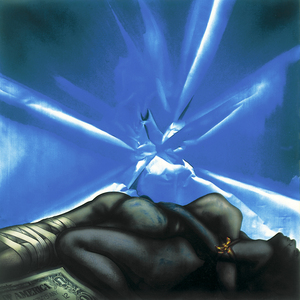
Jean Boisseieu
Coming soon
Olexander Butsenko
[...] However, as was stated, his paintings are polysemantic, beginning from aesthetic comprehension and ending in the deciphering of a detail. And the first is, undoubtedly, more important.Full textIf the Argentine writer Jorge Luis Borges is known as “the librarian of world literature,” then the Valencian artist Antoni Miró could be rightfully called “the treasurer of world painting.” His estate Mas Sopalmo near Alcoi, where he lives with his wife and son, resembles a museum, and here everything is systematized and catalogued “even better than in many museums,” notes the artist.
With the self-irony peculiar to him, he joked, showing one of his object-painting works (a figure of a soldier-dollar which divides into two parts), that those who bought it would have a double profit — both painting and sculpture for a single price, and very convenient to handle at that: it could be folded up. In the spirit of Valencian Antoni Miró, this book presents not only the creative endeavour of a talented artist but a peculiar gallery of world art.
Antonio Gamoneda
[...] Miró’s work, he shows visual “qualities” which are, precisely, distinctive and characteristic of the society we question.Full text
Jens Hagen
In Antoni Miró’s work, his will to combine and experiment new expression means is always characteristic besides his social and political commitment. [...]Full text
Rafael Alberti
The dollar
I wired you to sink in the darknessThe dollar
I bribe you until I made you a wormThe dollar
I bloodied and killed you to escape and abandon youThe dollar
Paper of the immediately crime to be already covered and buried
by the brightest faecal material free of menThe dollar! The dollar!! The dollar!!!
Arcadi Blasco
[...] Expert of all plastic expression techniques, determined, clearheaded and a tireless worker and also nocturnal, many of us know, and I know, what you are capable of giving. You can already imagine how much will be required of you.Full text
Ceferino Moreno
[...] The approach to his works, in the stylistic aspects, has evolved from a certain expressionism linked to connotations of other trends to a social critic chronicle much more contemporary [...]Full text
Joan Fuster
[...] Since the first day, in the crux of his firm and protean work, a critical decision has been projected on the man and the society created by the western man. It is sometimes the cry of complaint; others, the abrupt sarcasm and, from time to time, the proper incongruity of an art cornered with its own hypotheses. Hence a deep suggestion arises along with a lesson.Full text
José Mª Moreno Galván
[...]Miró often used elements that have reach in the first place, the painting, the colours, the canvas, the matter, on the second place, the speech, the words and literature. The artist knows how to adapt his language to the message you are looking for. All this builds one of the strongest artistic careers while been part of our civic culture.[...]Full text
Rafael Canogar
[...] Miró has removed the aesthetic hindrance without giving up any expressive artistic value for an immediate communication of the theme and creation. [...]Full text
Alícia Suàrez-Mercè Vidal
[...] his work is halfway through critical realism and “pop art” offering the viewer, here or abroad, enough elements to understand the meant burden Antoni Miró sets out to reflect.Full text
Javier Bengoechea
Coming soon
Jose de Castro Arines
[...] the most remarkable of this man is his insatiably need to know, his watchfulness to the formal demands of art as a meaningful form of our life [...]Full text
Modest Rodríguez-Cruells
Antoni Miró is a painter who reports human irregularities. He is in grief of unjustness but he tries to get away of the ignominy affecting us. Perhaps the set of his works is one of the means to spur us in order to collectively atone for the aliquot part of the fault we are responsible for. In his paintings, we always find the fierce denunciation, rigorously reported by Miró.
Pau Alabajos
History is written by womenFull text
and men who have lost their fear
to win the streets and squares
and to fill their mouth with dust.
The story is made by brave people
who have not stopped dreaming,
people who do not remain silent
before flagrant injustices.[...]
Conroy Maddox
Antoni Miró, founding member of the Spanish movement Alcoiart, shows paintings and sculptures where he employs various media to express his thoughts on Vietnam and, in a more abstract vein, formal concepts. Paintings which have no time and in which the rhythm is spatial. They are specific yet open to multiple allusions and tensions – human and psychological.
Ernest Contreras
[...]Antoni Miró re-vindicates the human category of manual work for artistic work. And this is the reason why all his works, those related to circumstantiated man —Vietnam, the factory, the longing for freedom—, as well as the ones that are abstracted from any historic circumstances — wrinkled paper, metallic geometry— are signed, deeply and warmly signed by a positive attitude: giving back to art its condition of daily labour, of a really human activity.Full text
